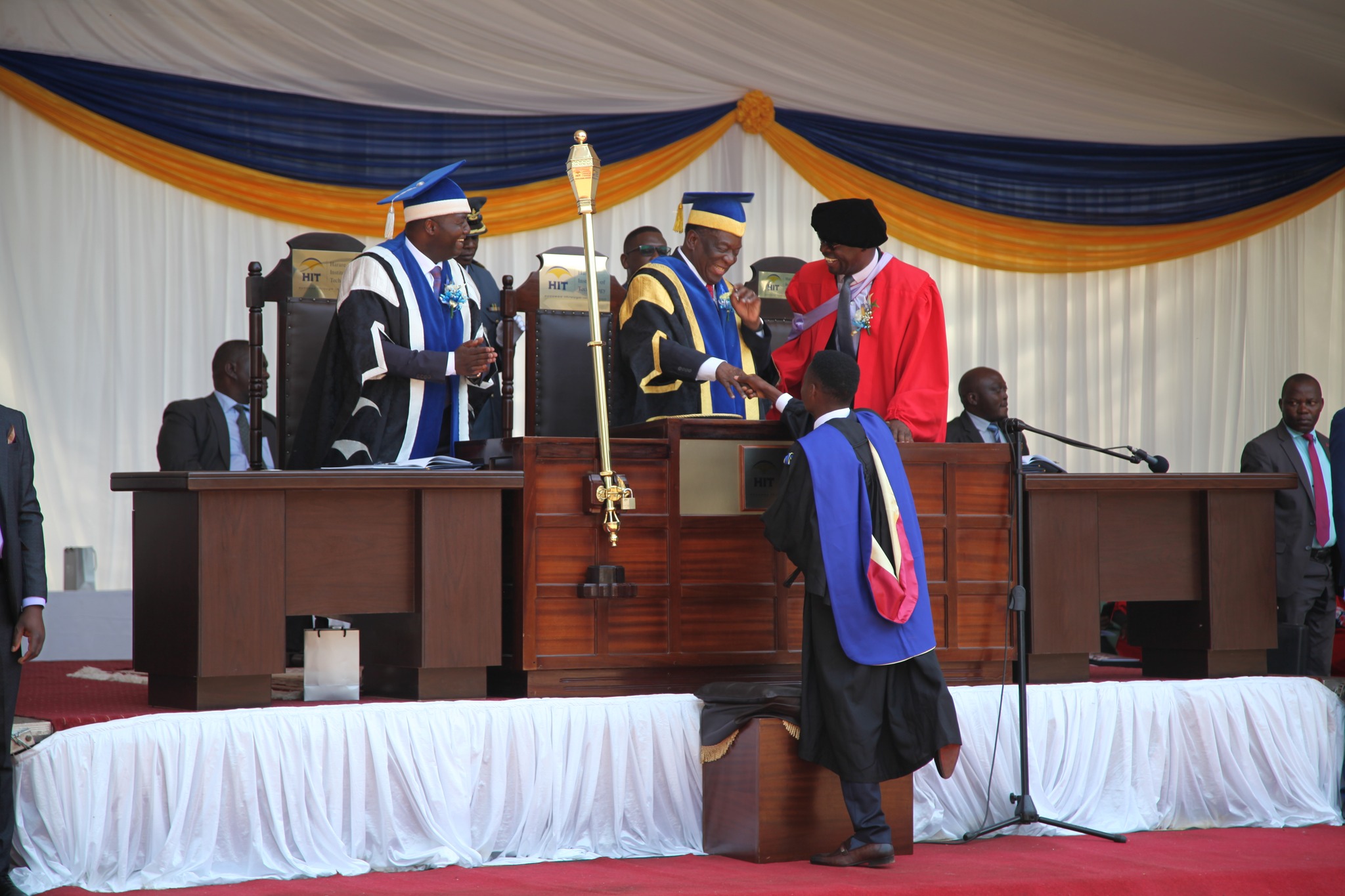President Emmerson Mnangagwa yesterday presided over the graduation of 640 students at the Harare Institute of Technology (HIT), marking a significant milestone in the institution's commitment to equipping graduates with skills and knowledge aligned with Zimbabwe's socio-economic development goals.
The 16th graduation ceremony included 518 undergraduates and 122 postgraduate students. Among them, 106 graduates completed inaugural programmes designed to advance the country's modernisation and industrialisation. These first-of-their-kind degrees included Master of Technology qualifications in Telecommunications and Wireless Networks, Electronic Commerce, Data Science and Analytics, Medical Ultrasound, Industrial Biotechnology, and Food Processing.
During the visit, President Mnangagwa also toured three key university projects: the lithium battery production plant, the Future Mobility Urban Mass Transportation System tram, and the Zimbabwe Republic Police Case Management System.
In his keynote address, HIT Vice Chancellor Professor Quinton Kanhukamwe highlighted the institution's focus on innovation and its contributions to national industrialisation. "These innovations are not abstract theories; they are solutions that will respond to the needs of Zimbabwean communities, industries and families," Prof Kanhukamwe said. He noted that the university's annual Technovation Expo, themed Designing the Future, celebrated 20 years of commercialising research and innovation to support the country's modernisation agenda.
Prof Kanhukamwe emphasised the integration of Artificial Intelligence (AI) and data analytics across the curriculum, noting that Zimbabwe must harness AI to avoid widening economic inequalities. He explained that the university's strategic plan is being realigned with the National Development Strategy (NDS) 2 to drive progress towards Vision 2030.
The vice chancellor also outlined HIT's achievements in research and development, including the filing of five utility models, ten industrial designs, seven trademarks, and 648 software copyrights with the Intellectual Property Office this year. The university has also received certificates of excellence from international peer-reviewed journals and recognition for its competency-driven curriculum.
Highlighting technological breakthroughs, Prof Kanhukamwe shared that HIT scientists developed an oxygen-aluminium battery, offering a non-toxic, recyclable, and affordable alternative for green energy applications. The university also produced telepresence robots to support healthcare delivery in underserved areas and AI models capable of detecting keratitis from corneal images to prevent blindness. Agricultural innovations included AI and Internet of Things applications to boost crop productivity and combat soil adulteration, while allied health researchers explored genomic biomarkers for hypertension and diabetes to enable locally tailored treatments.
On the lithium battery project, HIT aims to scale production to 90 units daily, reaching an annual capacity of 18,000 units by 2026 for Zimbabwe and regional markets. For the Urban Mass Transportation System, the university is producing 80- to 120-seater tram carriages, targeting a scaled annual output of 100 units by next year.
Among the graduates, six received the Emmerson Dambudzo Mnangagwa Chancellor's Award, each earning a US$500 cash prize in recognition of academic excellence.
The ceremony underscored HIT's role in aligning higher education with the country's industrial and technological development priorities, preparing graduates to contribute directly to Zimbabwe's modernisation and innovation-driven economy.
- The Chronicle
 Zimbabwe's fee cuts are welcome
Zimbabwe's fee cuts are welcome  ZEP holders face renewed uncertainty
ZEP holders face renewed uncertainty  India dumps US Treasury bills
India dumps US Treasury bills  ZSE and VFEX recover after weak 1st half
ZSE and VFEX recover after weak 1st half  Gold edges up as traders await guidance
Gold edges up as traders await guidance  Fastjet adds early morning Joburg-Harare flight
Fastjet adds early morning Joburg-Harare flight  Young Investment Professional (YIP) Graduate Programme 2019
Young Investment Professional (YIP) Graduate Programme 2019 











 Young Investment Professional (YIP) Graduate Programme 2019
Young Investment Professional (YIP) Graduate Programme 2019
Editor's Pick